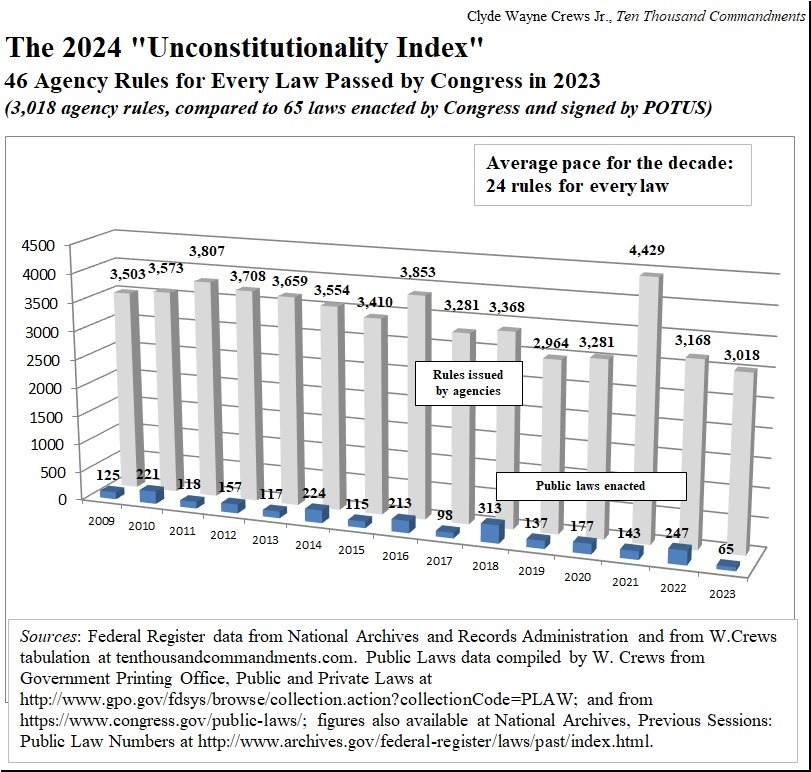Unconstitutionality Index going into 2024: 46 rules for every law

Photo Credit: Getty
The Biden’s administration’s 3,018 rules and regulations of 2023 is fairly typical of agency output these days. But while rule counts remain relatively stable, the heft of regulations is increasing in terms of length and cost. This contributed to the second-highest ever count of Federal Register pages at 90,402.
What it means is that federal agencies are the primary architects of law now, not the elected Congress. This is a departure from the Constitution’s intent. Contrasted against these 3,018 rules, there were “only” 65 bills signed into law in 2023.
As we enter the new year and the second session of the 118th Congress, it’s the perfect time to revisit the “Unconstitutionality Index.” This compares the ratio of rules issued by agencies to laws passed by Congress and signed by the president, to shed light on the evolving dynamics between federal agencies and the legislative branch.
As the chart below shows, federal agencies perform the bulk of lawmaking. The Index depicts a remarkable 46 agency rules for every law passed in 2023. This marks a significant increase from the average of 24 rules issued for every law over the past decade.

As I discussed at Forbes, the Index thus “provides appropriate big-picture framing and context about rules, flows, magnitudes, the outsized agency role in lawmaking, and the disinclination on the part of Congress to jealously guard that task.”
The federal debt just topped $34 trillion. As we grapple with the impending debt limit and spending fights in 2024, it’s crucial to focus not only on spending but also on the legislative/regulatory state’s role in shaping the expanding federal landscape.
While some commentators fretted over the relatively few laws enacted in 2023 and regarded it as evidence of dysfunction – a suspect point of view my colleague Richard Morrison recently dissected – the reality is that recent sessions of Congress have been more than prolific in enacting comprehensive laws, ranging from the CARES Act to the Bipartisan Infrastructure Law. The count of 247 laws in 2022, for example, was relatively high historically.
Rather than viewing a lower number of laws or regulations as dysfunction, look at it from the alternative perspective: There is far too much federal interference in our lives whether the laws come from Congress or the agencies.
Our Unconstitutionality Index presumes not merely that Congress should take back the lawmaking power it has delegated, but also that both legislature and agencies should back off in the New Year. A certain president might call that “breathing room” if he stopped to think about it.